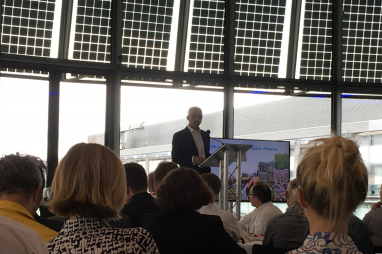- adidas ultraboost triple white , Украина #139909215 , Кроссовки высокие мужские зимние на меху adidas climaproof черные ботинки для мужчин зима — цена 2340 грн в каталоге Ботинки ✓ Купить мужские вещи по доступной цене на Шафе
- Пилинг - диски с bha и pha - кислотами needly daily toner pad 1шт — цена 50 грн в каталоге Скрабы для лица ✓ Купить товары для красоты и здоровья по доступной цене на Шафе , Украина #112548157
- stan smith nuud women black and blue jordan shoes - IetpShops - Adidas AdiFC Orlando Pirates
- NikeCourt Air Zoom GP Turbo CK7513 - 101 Release Date - SBD - 101 CK7580 - nike hyperdunk olympic white gold black hair
- SlocogShops , Kanye West Calls The adidas Yeezy Boost 350 V2 "Steel Grey" a "Fake" Colorway , adidas mock neck pullover sweater free pattern
- all star air jordan 1 gotta shine
- nike air force 1 boot cordura black wheat university gold do6702 001
- Air Jordan 1 University Blue 555088 134 Release Date Price 4
- Nike Blazer Mid 77 Catechu DC9265 101 Release Date
- new air jordan 1 high og osb dian blue chill white cd0463 401
- Home
- News and analysis
- Info hubs
- Events
- Video
- Case Studies
- About us
- Magazine
- Advertising
Produced for the industry by the Association for Consultancy and Engineering
News
London mayor sheds new light on devolved transport spend conundrum

London mayor Sadiq Khan has has released a report that effectively dismantles the previously held belief that London receives a disproportionately large amount of funding for transportation infrastructure.
As the UK industrial strategy continues to take shape, with transport investments identified as a key objective, the distribution of regional investment will be a key consideration going forward.
It has become commonplace to hear that on a basis of per capita spending, London receives double the amount of other regions for transportation expenditure, £981 in 2015-16 for London versus the UK average of £449.
However, this recent report, Transport expenditure in London, confronts this perception head on, demonstrating through statistical data that the demand on London transport far exceeds what is accounted for in the ‘per capita’ or residential population model.
At the release of the report, London mayor Sadiq Khan reaffirmed that infrastructure must play a key role in getting economic growth right, in London as well as across the UK, and that to ensure that a London is built that works for all Londoners, as well as those visiting or working in London, it was crucial that funding for transport is evaluated properly based on growing usage demands.
“To compare transport spending in London with any other UK region is just not comparing like with like and this report well and truly debunks the myth that we receive more than our fair share," said Khan. "Where London succeeds, the rest of the country succeeds and Crossrail is a great example of that. It will boost the national economy by billions of pounds and support thousands of new homes and jobs, not to mention improved transport links beyond London and into the wider south sast,” he said.
One way used by the report to disprove the ‘per capita’ model is the undeniable impact of commuters and tourists, who are not formally counted as part of regional residential population estimates yet do rely on the transport infrastructure in place in the capital.
Examining the usual daytime population instead of the residential population, there are 2.684 million people in London, that are not accounted for in the ‘per capita’ expenditure breakdown. Using the daytime population the transport cost per head would be £749 for London, compared to the UK average of £449.
Another way the report disproves the ‘per capita’ model is if the transport usage statistics are examined. According to usage statistics gathered by the Office for Rail and Road, in Great Britain there were approximately 1.5 billion journeys made for 2015-2016. Almost two-thirds of these journeys were made in London (934.6m). When expenditure is broken down over the number of journeys, the average cost per journey in London was £6.94 in 2015-16, which is below the Great Britain average of £10.31.
The report clearly calls for a review of the way transportation expenditure is handled throughout all UK regions as well as the portrayal of this more widely.
As initially stressed by Khan, with the government's industrial strategy underway the time is now to ensure that investments are handled appropriately so that infrastructure is properly utilised to further economic growth and prosperity.
The report launch was accompanied by a panel discussion in which industry and city leaders took questions from the audience to discuss the challenges ahead as well as ways in which projects can be delivered to meet community need in a timely manner, leveraging assorted forms of funding.
Stressing the importance of planning for future challenges, Michele Dix managing director of Crossrail 2 said: “We must and are striving to support the growth in demand going forward, instead of just responding to [demand] growth.”
While Khan said at the event that the “government must be held to account”, he also put his words into action by announcing the convening of a new high-level group to oversee infrastructure development in London, coordinating the views of GLA and industry to present a united voice to achieve the future infrastructure that London needs to meet future demand.
Click here to read the Transport Expenditure in London report.





